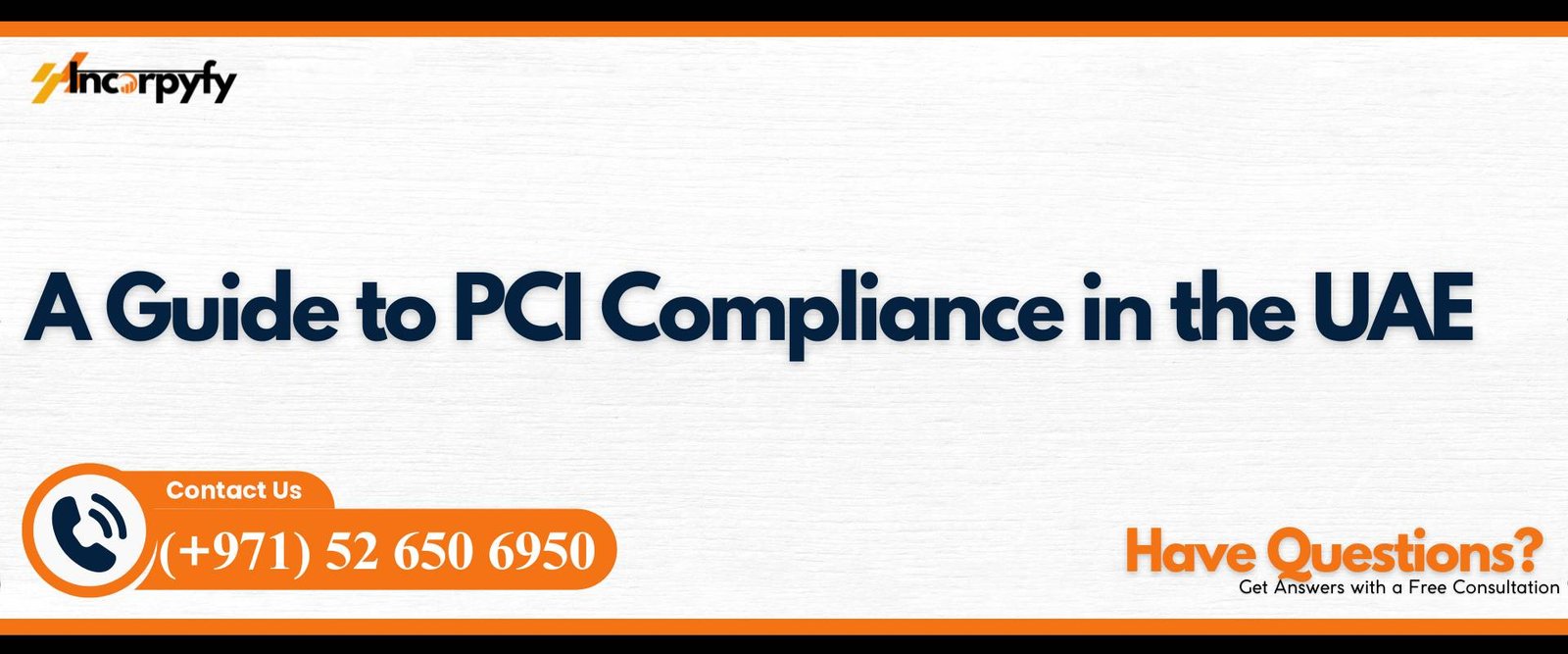
As digital payments continue to grow across the UAE, businesses handling credit or debit card information must prioritize data security and regulatory compliance. One of the most critical standards governing payment data protection is PCI DSS, or Payment Card Industry Data Security Standard. For companies in the UAE dealing with cardholder data—especially e-commerce platforms, fintech providers, retail stores, and financial institutions—understanding and adhering to PCI compliance is not optional; it’s essential.
This guide will walk you through everything you need to know about PCI compliance in the UAE, including what it means, who it applies to, how to become compliant, and why non-compliance can severely impact your business.
What is PCI DSS?
PCI DSS stands for Payment Card Industry Data Security Standard. It’s a global set of security standards developed by the PCI Security Standards Council (PCI SSC) to ensure that all companies that accept, process, store, or transmit credit card information maintain a secure environment.
Who Created PCI DSS?
The standard was created by major card brands:
- Visa
- MasterCard
- American Express
- Discover
- JCB
Together, these companies formed the PCI Security Standards Council (PCI SSC) to enforce and evolve these security practices.
Why PCI Compliance Matters in the UAE
The UAE is at the forefront of digital transformation in the Middle East. With widespread use of contactless payments, mobile wallets, and online transactions, the risk of credit card fraud and data breaches is higher than ever. That’s why PCI compliance in the UAE is crucial.
Key Reasons PCI Compliance is Critical in the UAE
- Protects customer cardholder data
- Builds trust with consumers and partners
- Avoids legal liability for data breaches
- Prevents financial loss from penalties or fraud
- Ensures smooth operations with acquiring banks and payment processors
In short, if you handle card payments, you need to be PCI DSS compliant in the UAE—regardless of your business size.
Who Needs PCI Compliance in the UAE?
PCI DSS applies to any organization that stores, processes, or transmits cardholder data. This includes both large enterprises and small businesses.
Industries That Must Comply
- E-commerce websites
- POS retailers
- Hospitality (hotels, travel agencies)
- Healthcare providers accepting card payments
- Banks and financial institutions
- Payment gateways and fintech apps
Even startups and freelancers who collect credit card information are required to follow PCI DSS standards in the UAE.
Levels of PCI Compliance
PCI DSS defines four levels of compliance based on transaction volume per year.
PCI Compliance Levels:
- Level 1: Over 6 million transactions/year (requires third-party audit)
- Level 2: 1 to 6 million transactions/year
- Level 3: 20,000 to 1 million transactions/year
- Level 4: Less than 20,000 transactions/year
Each level has specific reporting and validation requirements, such as Self-Assessment Questionnaires (SAQs) or on-site audits by a Qualified Security Assessor (QSA).
Key Requirements of PCI DSS
There are 12 core requirements in PCI DSS, grouped into 6 categories. Every organization must meet these to achieve compliance.
Build and Maintain a Secure Network
- Install and maintain a firewall configuration
- Avoid using default system passwords
Protect Cardholder Data
- Encrypt transmission of cardholder data across public networks
- Protect stored cardholder data with strong cryptography
Maintain a Vulnerability Management Program
- Use and regularly update anti-virus software
- Develop and maintain secure systems and applications
Implement Strong Access Control Measures
- Restrict access to cardholder data on a need-to-know basis
- Assign a unique ID to every user
- Restrict physical access to cardholder data
Regularly Monitor and Test Networks
- Track and monitor all access to network resources
- Test security systems and processes regularly
Maintain an Information Security Policy
- Create and maintain a policy that addresses information security for employees and vendors
Meeting these requirements ensures that your business is PCI compliant and significantly reduces the risk of a data breach.
How to Become PCI Compliant in the UAE
The process of becoming PCI compliant depends on your business size, transaction volume, and technical infrastructure.
Step 1: Identify Your Compliance Level
Start by checking your annual card transaction volume to determine which PCI level applies to you.
Step 2: Choose the Right SAQ or Prepare for Audit
Depending on your business model, you’ll either fill out a Self-Assessment Questionnaire (SAQ) or undergo an on-site audit by a Qualified Security Assessor (QSA).
SAQs come in several versions—A, A-EP, B, C, C-VT, D—each suited for different environments.
Step 3: Conduct a Gap Analysis
A PCI gap analysis helps you identify what parts of your system fall short of the required controls. Many businesses in the UAE hire PCI consultants for this stage.
Step 4: Implement Required Security Controls
This may involve:
- Upgrading software
- Installing firewalls
- Encrypting databases
- Limiting admin access
- Training staff on compliance practices
Step 5: Complete and Submit Attestation of Compliance (AOC)
Once compliant, you or your QSA will submit the Attestation of Compliance (AOC) to your acquiring bank or payment provider.
Penalties for Non-Compliance in the UAE
Non-compliance with PCI DSS standards can lead to serious consequences for businesses operating in the UAE.
Possible Penalties Include:
- Hefty fines from acquiring banks or card networks (Visa, MasterCard)
- Increased transaction fees
- Termination of merchant services
- Legal action in the event of a data breach
- Loss of customer trust and brand damage
Some businesses face penalties ranging from $5,000 to $100,000 per month depending on the severity and duration of non-compliance.
PCI DSS and UAE Data Protection Laws
Although PCI DSS is an international standard, it aligns well with the UAE’s data protection and cybersecurity laws, such as:
- UAE Federal Decree-Law No. 45 of 2021 on Personal Data Protection
- Dubai International Financial Centre (DIFC) Data Protection Law
- ADGM Data Protection Regulations
These laws emphasize customer data protection, making PCI compliance not just a best practice, but a legal expectation.
Benefits of Being PCI Compliant in the UAE
Beyond avoiding penalties, PCI compliance offers several strategic benefits to businesses.
Key Advantages Include:
- Enhanced customer trust and credibility
- Stronger data security infrastructure
- Easier partnerships with banks and payment providers
- Better protection against cyber threats and fraud
- Improved brand reputation in the UAE market
In a competitive economy like the UAE’s, PCI compliance can give your business a distinct edge.
Working with PCI Compliance Experts in the UAE
For many businesses, especially startups and SMEs, the technical and operational complexity of PCI DSS can be overwhelming. That’s why working with a PCI compliance consultant in the UAE can save time, reduce errors, and improve your chances of getting certified quickly.
What PCI Consultants Do
- Conduct gap analysis
- Guide you through the SAQ or audit process
- Help implement technical solutions
- Provide employee training
- Offer ongoing support and monitoring
PCI DSS and E-Commerce in the UAE
The e-commerce boom in the UAE has made PCI DSS compliance more important than ever. If your business operates an online store, you must ensure that your:
- Payment gateway is PCI compliant
- Customer data is encrypted
- Server and web hosting are secure
- Shopping cart and plugins are updated and patched
Many platforms like Shopify, Magento, and WooCommerce offer PCI-compliant features, but it’s still your responsibility to maintain compliance on your end.
PCI DSS and Payment Gateway Providers in the UAE
Some UAE businesses rely on third-party payment gateways like Telr, PayTabs, Network International, and Checkout.com. These providers are already PCI compliant, which makes your job easier—but you still need to ensure your environment integrates securely.
Responsibilities Still Apply
- Never store cardholder data unless absolutely necessary
- Use tokenization or secure checkout redirects
- Limit data access within your organization
- Periodically review and test your environment
PCI DSS for Fintech Companies in the UAE
Fintech startups handling digital wallets, peer-to-peer payments, or prepaid cards must strictly adhere to PCI DSS guidelines to:
- Pass regulatory reviews
- Build customer confidence
- Attract investors and partners
For fintech companies, compliance is not optional—it’s foundational.
Learn More: Business Setup Consultants in Dubai, UAE
Conclusion
As digital transactions grow in the UAE, PCI compliance is not just a technical requirement—it’s a critical part of your business strategy. Whether you’re running a retail store, a fintech app, or an online shop, safeguarding cardholder data is key to gaining trust, avoiding penalties, and scaling your operations in this tech-driven economy.
Understanding PCI DSS requirements, conducting risk assessments, and implementing strong security controls help you create a safe, trustworthy environment for your customers and partners.
Don’t wait until a data breach or bank fine forces your hand. Take proactive steps now, partner with the right experts, and make PCI compliance a core part of your business in the UAE.
FAQs
What is PCI compliance and why is it important in the UAE?
PCI compliance ensures that your business protects cardholder data according to global security standards. In the UAE, it’s essential for legal, operational, and reputational reasons.
Is PCI DSS mandatory in the UAE?
Yes. If you accept, store, or process credit card information, PCI DSS compliance is mandatory, regardless of business size.
What happens if my UAE business is not PCI compliant?
You could face fines, increased transaction fees, legal action, or even termination of your merchant account. A data breach could also lead to brand damage and lost customers.
How much does it cost to become PCI compliant in the UAE?
Costs vary by business size and complexity. Small businesses using a PCI-compliant payment gateway may spend a few hundred dirhams, while larger enterprises could spend tens of thousands of dirhams for audits and implementation.
Do I need a PCI QSA in the UAE?
If your business processes over 6 million transactions a year, you’ll need a Qualified Security Assessor (QSA) to conduct an audit. Smaller businesses can complete a Self-Assessment Questionnaire (SAQ).
How long does it take to become PCI compliant?
It depends on your current security posture. For small businesses, it could take a few weeks. For larger organizations, it may take several months of preparation, system upgrades, and testing.






